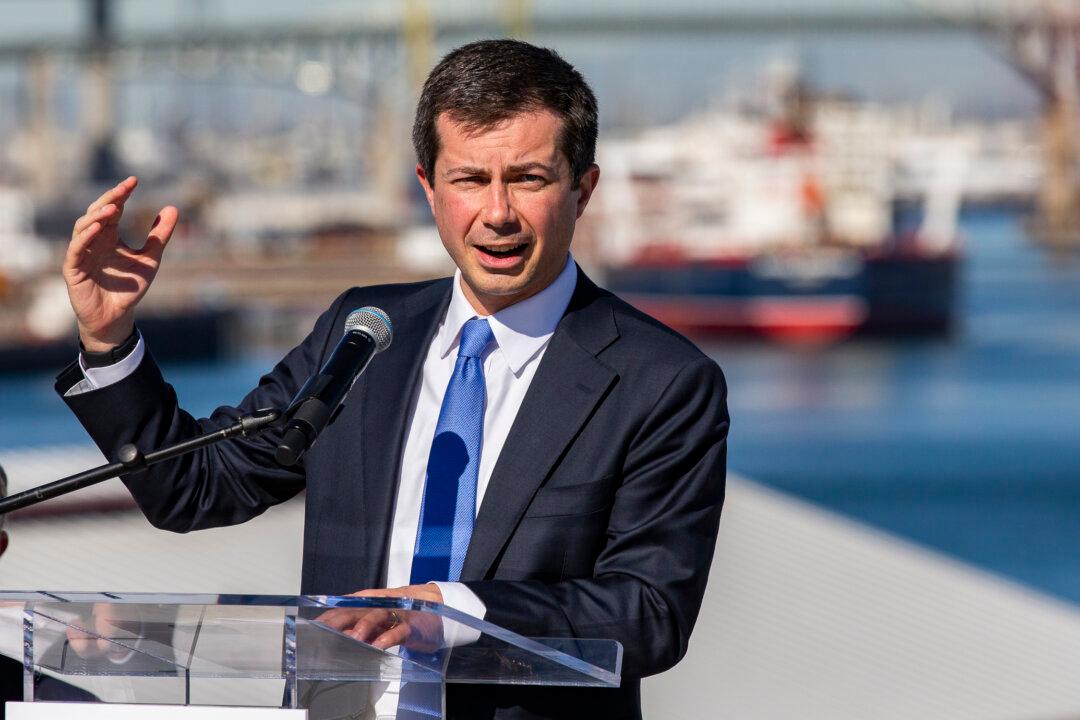Transportation Secretary Pete Buttigieg faced sharp criticism after he appeared to cast some of the blame for the Ohio train derailment onto former President Donald Trump because the Department of Transportation (DOT) under the former president nixed an Obama-era regulation on advanced train brake systems.
The derailment in East Palestine, Ohio, on Feb. 3 of a freight train carrying hazardous chemicals sparked a blaze, releasing toxins into the air and forcing evacuations.





